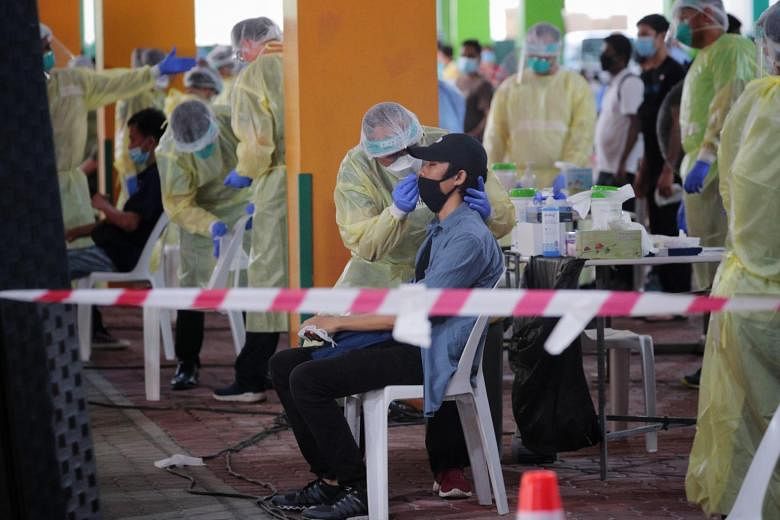Close to 200 clinics are now equipped to perform Covid-19 tests, as part of efforts to ramp up testing as the economy gradually reopens.
Four regional screening centres - with a fifth to open soon - have also started operating, to take Singapore from 13,000 tests a day now to 40,000 in the coming months.
Mobile and drive-through facilities are also being set up.
Among those being tested are students above the age of 12 with acute respiratory infections (ARI), as well as school staff.
In an update on its website yesterday, the Ministry of Education (MOE) said that this was part of efforts to stem the spread of the coronavirus in schools and the community.
MOE said that school staff and students aged 13 and above who are diagnosed with ARI will be referred to a designated clinic or polyclinic participating in the Swab and Send Home (Sash) initiative or one of the regional testing centres.
For younger students, doctors will assess whether a test is required as they may have different clinical considerations from their older schoolmates.
As of yesterday, there were 196 Sash clinics listed on flugowhere.gov.sg, the government portal for Public Health Preparedness Clinics.
Staff and students must have their staff or student pass when they go to get tested.
Non-MOE staff who work in schools or with students will need to have a letter of identification from the school and a form of identification with their NRIC or FIN number.
Those aged 13 to 16 should be accompanied by a parent or guardian for consent-taking purposes, and so that they can be briefed on precautions to take while waiting for the test results.
Those referred for testing will not have to pay for it.
The ministry also explained why a different approach was being taken from pre-schools, where all staff were tested.
It said that factors such as the level of close interaction between staff and students, as well as a group's vulnerability and risk of spread, are taken into account.
"As pre-school staff have much closer physical interactions with their students, as compared to staff of other schools, all pre-school staff were tested in a one-time sweep before the pre-schools resumed full services," said MOE.
On Sunday, MOE said that four students and one non-teaching staff from five different schools had tested positive for the coronavirus.
Mrs Gloria Chan, 40, who works in human resources, and whose eight-year-old daughter came home with a fever and runny nose after her first day of school on Monday, said: "I would have preferred for her to be swabbed, but because she's too young, she was placed on five days' MC."
She added that the testing regime was a good initiative to help keep schoolchildren safe.
Student Brayden Wu, 16, said: "I would be scared of the pain, but if the testing means that more students can be safe, I would do it if I have to."
He added that his parents felt the same way.
Dr Dale Lim, family physician at The Tenteram Clinic - one of the 196 clinics listed - said that the test is relatively painless, though there may be some slight discomfort during the procedure.
"It's a simple and convenient test to detect and treat the virus early - there's nothing to fear," he said.
Dr Raymond Ong, general practitioner at Intemedical 24 Hour Clinic in Ang Mo Kio, another designated clinic, urged parents of children who meet the testing criteria to have them tested.
He said: "It's important that any cases are picked up to prevent mass community spread. Such a spread would cause a longer lockdown, economic recession, and affect people's grandparents adversely... You're doing this for your country, your pocket and your loved ones at home as well."
What does testing for Covid-19 entail?
Singapore is expanding its testing capacity to improve its ability to control the spread of the virus as the economy gradually reopens.
Where testing is done
• Mass testing has been conducted at foreign worker dormitories and at some polytechnics for pre-school staff.
• At hospitals, and at 196 polyclinics and general practitioner clinics.
• Four regional screening centres at Old Police Academy, The Float @ Marina Bay, Bukit Gombak Sports Hall and Bishan Sports Hall.
• A fifth centre will open later at 2 Bedok North Street 2, a former sepak takraw sports hall.
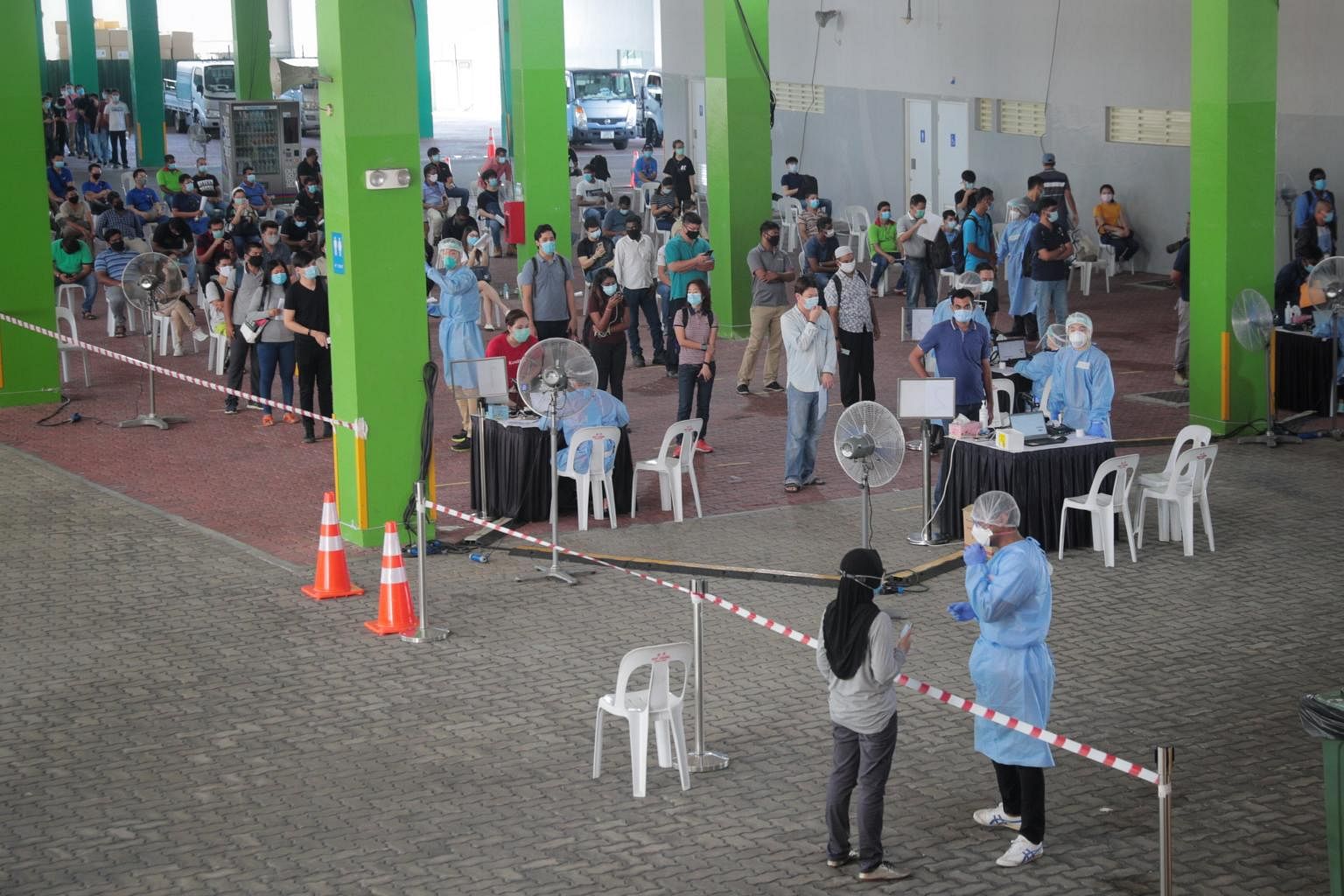
Groups tested so far include:
• Staff and residents of senior homes
• Pre-school workers
• Essential workers including front-line officers and healthcare workers
• Migrant workers in foreign worker dormitories, some of whom are in essential sectors
• People diagnosed with acute respiratory infection when they visit the doctor, with priority given to:
- Seniors above 65 years old
- Healthcare workers
- Staff from educational institutions and students who are aged 13 and older
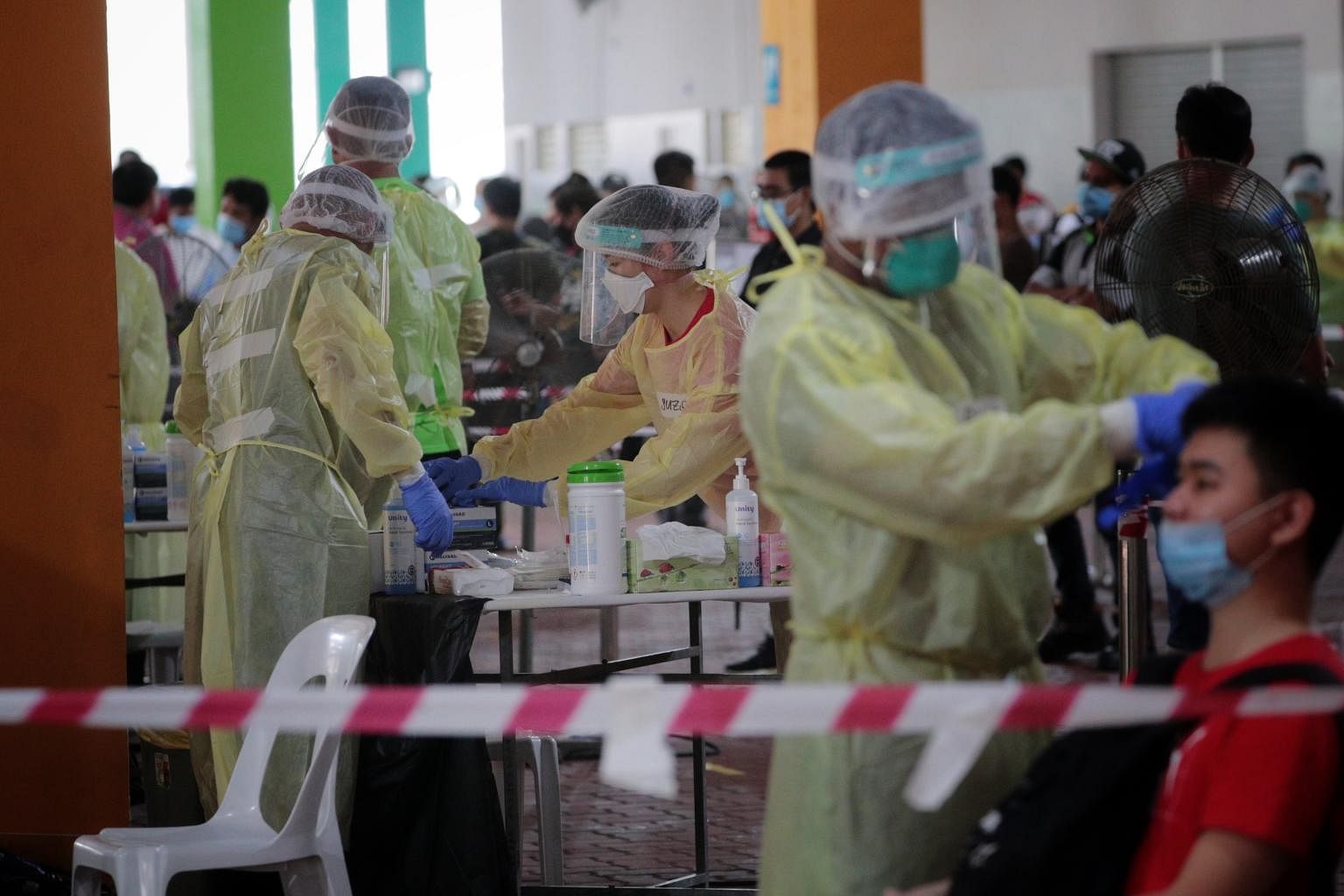
What is the test
The polymerase chain reaction (PCR) test looks for Covid-19 genetic sequences which indicate if a person is infected.
What to expect during a PCR test
• The swab test is free of charge and will take 3 to 4 minutes.
• Most laboratories can give the results on the same day.
• Take along your ID card as multiple checks are likely to be conducted to ensure that the swab test is conducted on the right person.
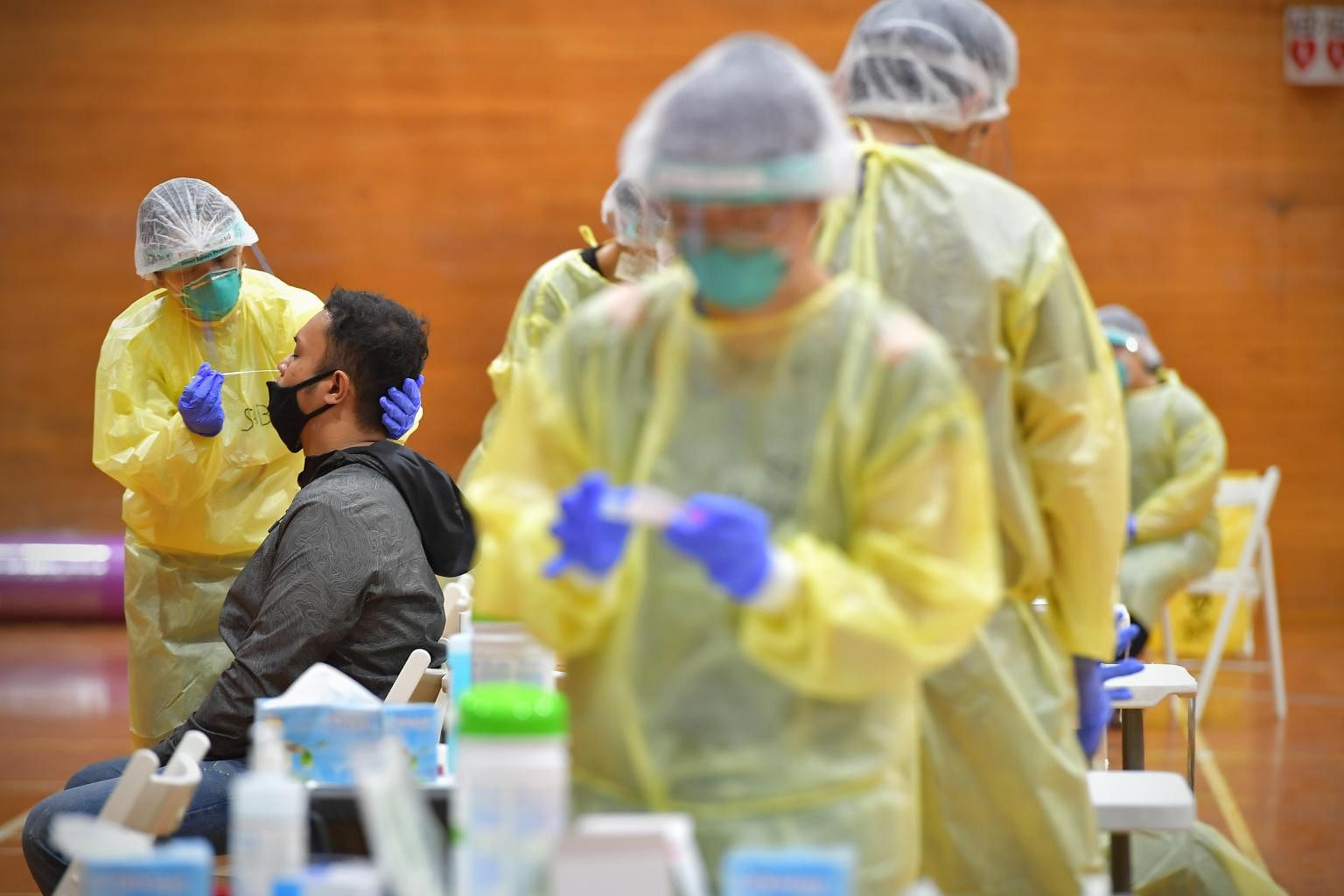
How the PCR test is done
• Samples are taken from the nasopharynx (the back of the nose) or from the oropharynx (the back of the throat). The back of the nose is often the preferred sample source as it has the highest viral load among Covid-19 patients.
• A nasal swab will not be conducted if you have had any nose bleed, surgery or injury recently.
Nose swab
• Tissue paper will be provided. Blow your nose to clear all mucus. Once you are done, throw the tissue paper into the trash bin for biohazard waste.
• Lean your head backwards, and lift your chin.
• A cotton swab will be placed in each of your nostrils, all the way to the back of the nose for two to three seconds each. Remember to stay still. You may tear or feel slightly uncomfortable.
• Raise your hand if you experience any pain or discomfort.
• Once the swab is finished, the sample is placed in a biohazard bag labelled with your name
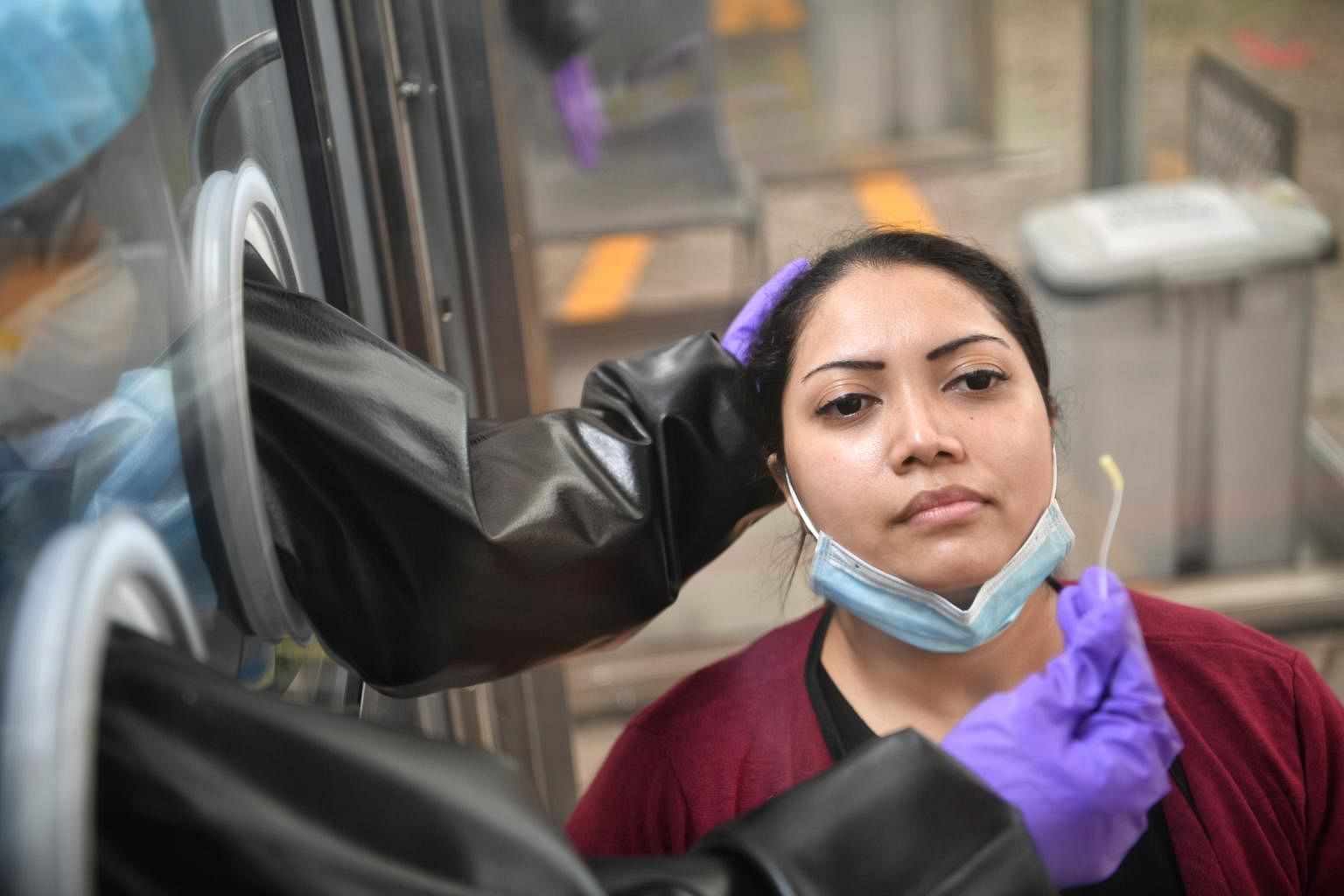
Oral swab
• Tilt your head backwards, open your mouth wide and say "ah".
• A cotton swab will be placed down your throat, for around 2-3 seconds. Remember to stay still. It may feel ticklish or slightly uncomfortable.
• Raise your hand if you experience any pain or discomfort.
• Once the swab is finished, the sample is placed in a biohazard bag labelled with your name.
SOURCE: DR MELVIN HENG, CHIEF OPERATING OFFICER, GLENEAGLES HOSPITAL
